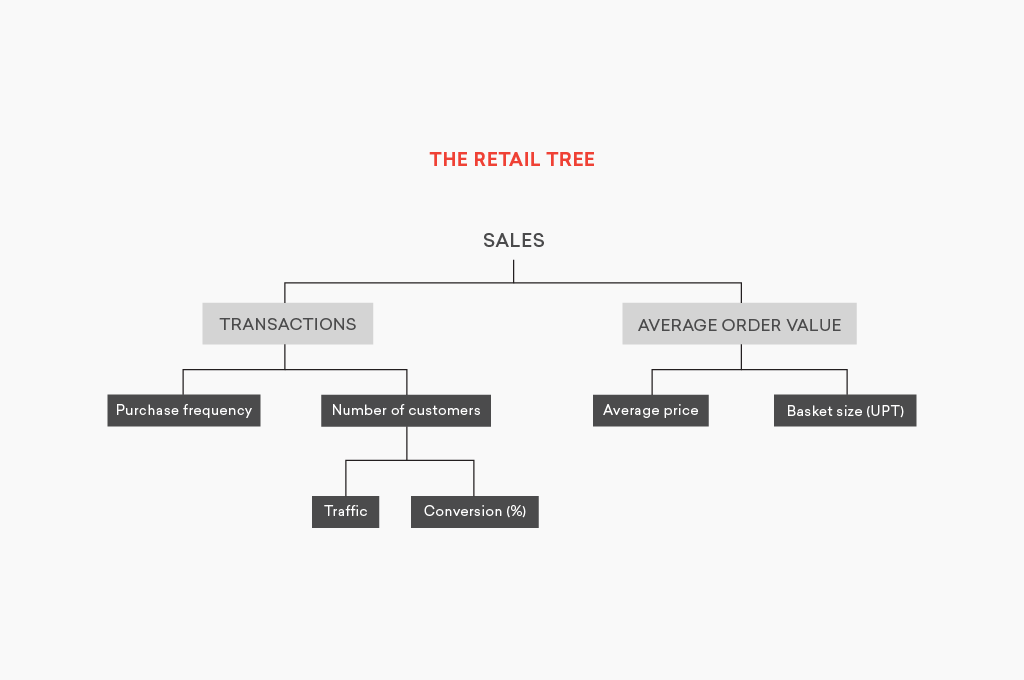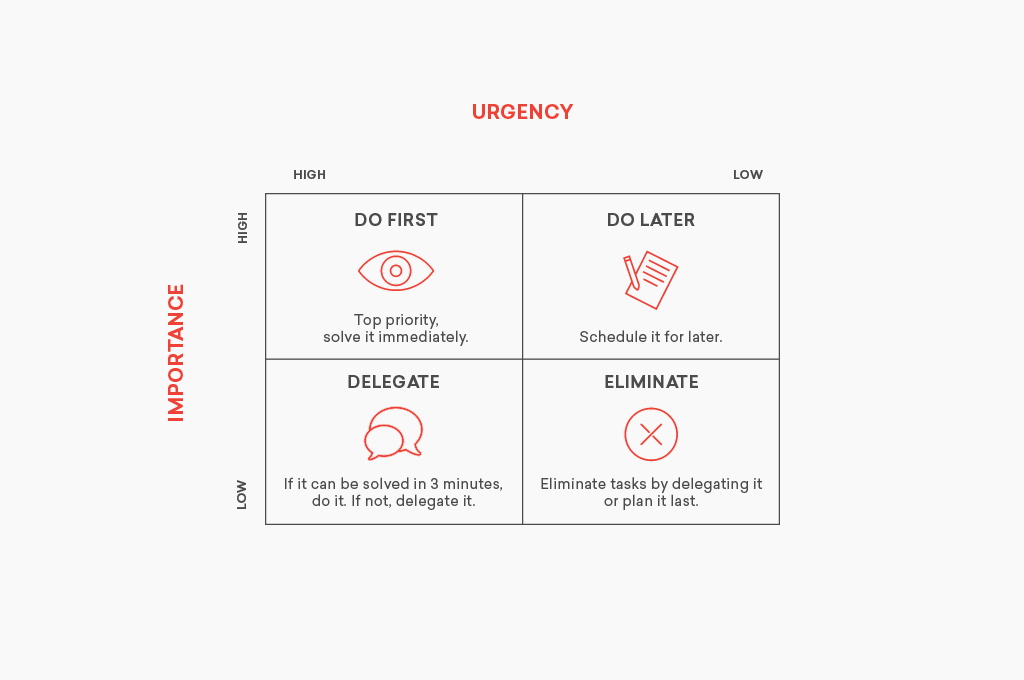Although it is often regarded as very stressful and demanding, an account manager’s job can be exciting and highly rewarding. In order for you to be a successful account manager, here are a few tips & tricks of the trade you need to know.
As an account manager, you will usually be in charge of several clients (accounts) from various industries. This kind of environment gives you a unique opportunity to learn and explore different trends, specifics and best practices across industries.
But, on the other hand, if you don’t approach the job properly, your day-to-day can easily transform into chaos. This is why it is essential to know a few tips and tricks on how to be a great account manager.
But first, let’s take a more detailed look at an account manager’s job description, specifically what an account manager does in Degordian.
What does an Account Manager do (in an agency)?
In a nutshell, an account manager is a person in charge of nurturing relationships and increasing the revenue of current customers through upselling, cross-selling and good client service management.
The keyword here is current customers.
The account manager is usually not in charge of getting new leads, or new customers, but taking care of relationships with existing ones.
Sales is usually the domain of a business development unit that searches for new prospects through outbound and outreach. However, account managers are part of this process, especially in the ending phase of closing the deals. But they very rarely do the outbound, cold calling or other sales methods for growing business.
The agency’s goal is to provide the best possible solution and service to a client, so the main and most challenging task for an account manager is to understand the client’s needs, desires and challenges.
This requires staying in touch with the latest relevant trends, industry news and best practices across industries. You will also need to be very familiar with all the various services your agency provides — from TV commercials, brandbooks, lead generation campaigns to website and product development, everything that can add up to a perfect solution for your client’s challenge.

One of the most important responsibilities of an account manager is finances. An account manager takes care of the budgeting and invoicing, but also explores the upsell and cross-sell opportunities.
When it comes to the operational level, the account Manager gathers and coordinates the team and assures the quality of the output, making sure that everything is according to the brief and high standards of the industry.
Usually, an account manager oversees multiple accounts and is the single point of contact for the client, so good communication and organizational skills are crucial.
A good understanding of clients’ needs and business paired up with great communication skills enables finding upsell and cross-sell opportunities, which are also a very important part of the day-to-day job of an account manager.
Now that we understand an account manager’s job description, let’s dive deeper into the 5 ways of how to be a great account manager.
5 ways to grow into an outstanding Account Manager
1) Get to know your client
As obvious as it sounds, one of the easiest things to do is to really know your client and the industry they are in. This requires staying in touch with the latest relevant trends, industry news, and best practices across the industry but also understanding the business perspective.
Understand the business
Each industry has its own business model and its own laws. Let’s take a look at an example of the retail business model.

Source: https://melinaf.medium.com/the-only-retail-sales-framework-you-need-to-know-66ee16dc06d2
Retail is all about transactions and average order value.
The transaction part can be divided into frequency and number of customers, and the average order value is made up of the average price and basket size.
If you can create marketing proposals that increase the frequency of buying or basket size, you are on the right track to delight your client and drive business results.
Try to create or research business models for your client’s industries and have that in mind the next time you will be creating proposals and campaigns. This approach is something that creates a real difference and adds value to your work.
Research competition
Your client expects you to be on top of everything, so this is one of the crucial habits you need to have in your day-to-day job.
The easiest way is to set up a media tracking system that will allow you to track the competition of your most important clients. That way you’ll understand your competition and proactively propose new activities that will help your client increase its market share.
Determ is a great tool that provides a simple overview of the competition, industry trends, consumer conversations on forums and everything else you want to track.
Stay in touch with the relevant trends
One of the easiest ways to follow relevant trends is to subscribe to a newsletter that offers the latest news and trends, such as Marketing Dive, or find a specific industry newsletter (Retail Dive).
You can also create a habit of dedicating 10 minutes every morning or evening to reviewing major marketing and advertising news portals to see what is going on. All of this will help you when the next pitch or project comes up.
The best way to summarize the importance of knowing your client is to cite David Ogilvy on accounts: If you want to start your career as an account executive, I repeat the advice I offered in my Confessions. Set yourself to becoming the best-informed person in the agency on the account to which you are assigned. If, for example, it is a gasoline account, read books on oil geology and the production of petroleum products. Read the trade journals in the field. Spend Saturday mornings in service stations, talking to motorists. Visit your client’s refineries and research laboratories. At the end of your first year, you will know more about the oil business than your boss, and be ready to succeed him.
2) Don’t be a passive account manager
Don’t just wait for new work to fall in your lap — propose new opportunities. Long gone are the days when it was enough just to answer your client’s questions. Nowadays, this is the bare minimum that is expected from you. If you are just waiting for briefs and pitches, you and the agency are simply viewed as contractors, not as experts who provide value.
Be an active account manager
Instead, be an active account manager. Get to know your client, understand their business model and industry and co-create proactive suggestions and advice. Try to spot opportunities for growth or connect different activities.
On the agency side, don’t act as a stranger or middleman — connect with your team and have regular syncs. At the end of the day, you are all in this together.
Set up sync calls
Set up monthly or weekly calls with the client to see what their pain points, plans, focuses are, and activities they are planning. If you are on top of everything, you can easily come up with new ideas for the client and create opportunities for upsell or cross-sell your services.
Also, be proactive in communication with your colleagues, and set up regular sync calls with your team so you can see some new opportunities and create proactive proposals. Sometimes, there will be no time for this or no opportunities available. Try to do it quarterly, at least. Clients will appreciate your proactivity and dedication.
Don’t send proposals just for the sake of it.
Each proposal you send must have some underlying principle that drives business growth for the client. If you come up with some general proposal and send it to all of your clients, it can actually backfire, because most of the time the proposal will not be suitable and you’ll show a lack of understanding of their industry or business.
If you do see an opportunity, invest in acquisition time with your team and set up meaningful proposals that truly make sense.
Always send extra proposals
When you get a brief or an assignment, don’t just stick with what you are asked to do. That is, again, the bare minimum that you need to provide. Always send some extra or experimental proposals. In this way, you show your creativity, out-of-the-box thinking and what you are capable of.

3) Manage expectations
The most important but not so obvious thing is to set up expectations. Setting up expectations right at the beginning of cooperation eliminates a lot of friction, hiccups and dissatisfaction.
Use negotiation techniques: paraphrasing and mirroring
One of the techniques you can use is the Chriss Voss’s hostage negotiation technique of paraphrasing and mirroring.
Paraphrasing means you summarize what clients said to you using your own words (“If I understood correctly…”). This is very useful during brief sessions to make sure you understand the brief, goals and KPIs and you have the same expectations.
The same applies to mirroring. Mirroring is taking the last few words a person said to you and repeating them back.
For example, the client might say:
-…with this campaign we aim to activate our sleeping customers.
– Sleeping customers? What do you mean by that?
– Well, sleeping customers are those that haven’t made transactions in the last 6 months but have a loyalty card.
– Ok, do you have some data on them to see the details on demographics, their shopping habits etc.
– Sure, we can provide you with the specific data.
– Great, thanks!
Imagine you didn’t ask for details about the sleeping customers in the example above. You might have one perception of what that means and the client might have another. You could potentially go and develop a campaign based on your assumptions that might be wrong and result in the client’s disappointment and poor business results.
If you want to know more about negotiation techniques, you can read the book Never split the difference, or watch Chris Voss’s Masterclass: The Art of Negotiation.
Financial expectations
When it comes to expectations, one of the most important things is budgeting. Sometimes clients (especially new ones) have expectations about the cost of your agency’s services. Make sure to set up financial expectations right away to avoid any misunderstandings. If you mismatch on the financial side, you can save a lot of time by bringing this right up front.
4) Set up your priorities
To set up your priorities more effectively, there are some useful habits you can develop.
Organize your email inbox
As an account manager, the first thing you do in the morning is check your email. That is the main dashboard you are going to use and work from for the whole day. It is super important to find a way you’ll easily navigate through this dashboard and filter out important messages. For instance, you can use a system where you label emails according to clients or service. Another great way to systematize your inbox is to mark an email as read only once you have finished the task. You can experiment with the different approaches and find something that suits you best.
Always be at disposal, even if you are not
It is important to show your clients and colleagues that you are at their disposal. But sometimes, chaos gets in your way and people can wait for a long time for your reply which can be problematic.
There is a great trick you can use even if you don’t have time to take time to solve the task/answer the message: you always answer the mail as soon as possible, especially if it is an important client/project, and write something as short as I got your email, will get back to you soon.
This communicates to the client/colleague that you got it and you are working on it. It calms the client and deepens the trust between the two of you. You are always at their disposal, even if you don’t have the answer right away.
Urgency Importance matrix
In setting up your priorities, have the urgency-importance matrix in mind. This matrix is famously known as the Eisenhover matrix and it shows the urgency-importance relation which is a great way for prioritizing your tasks.

There are four quadrants and possible actions you can take on each task. If there is high importance and high urgency, this is your top priority and you should do it first. If the task is important, but not urgent, plan it for later.
If the task is urgent but not important you can delegate it, or you can follow a rule of thumb — if it can be done in less than 3 minutes, do it. At last, if there is something in your inbox that is not important, nor urgent, try to eliminate it if you can, or do it last.
You can print out this matrix and let it guide you every time you feel overwhelmed or stuck!
5) Educate yourself and experiment
Always try to apply new techniques and approaches. For example, one field you can experiment with is communication and negotiation. As an account manager, most of the time you communicate, either in writing or verbaly.
You can experiment with the structure of your emails, or with the way your presentation will flow. Try focusing on one field at a time and implementing different techniques you find.
Educate yourself in negotiation
Create a regular habit of educating yourself in fields you want to experiment on. Here is a head start for your negotiation skills. If you want to handle one of the most common client objections, pricing, check out this role play video by Chris Do and The Futur in which you can learn what you can say and do when the client says your price is too high.
Being an account manager can be very exciting and highly rewarding. Always tend to be an active and supportive rather than passive. Stay on top of the trends, never stop educating yourself and success is right around the corner. 🙂



